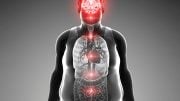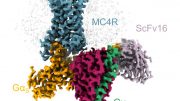
Researchers at the University of Michigan have found that the perception of hunger alone, as opposed to actual food restriction, may slow aging. Their experiments with flies demonstrated that inducing hunger, either through dietary manipulation or by activating specific neurons, led to increased food consumption and longer lifespan.
People resort to various measures from low-carb diets and intermittent fasting to surgical procedures and medications like Ozempic in their quest for weight loss. It’s a well-established fact that curbing food intake fosters healthy aging across a variety of species, humans included. Now, a recent study from the University of Michigan suggests that the mere sensation of hunger could potentially decelerate the aging process.
Prior research has shown that even experiencing the taste and smell of food can reverse the life-prolonging advantages of dietary restriction, irrespective of whether the food is actually consumed.
These intriguing findings drove first author Kristy Weaver, Ph.D., principal investigator Scott Pletcher, Ph.D., and their colleagues to examine whether changes in the brain that prompt the drive to seek food could be behind longer life.
“We’ve sort of divorced [the life-extending effects of diet restriction] from all of the nutritional manipulations of the diet that researchers had worked on for many years to say they’re not required,” said Pletcher. “The perception of not enough food is sufficient.”
To do this, they induced hunger in flies in several ways. The first was to alter the amount of branched-chain amino acids, or BCAAs, in a test snack food and later allow the flies to freely feed on a buffet of yeast or sugar food. Flies fed the low-BCAA snack consumed more yeast than sugar in the buffet than did the flies fed the high-BCAA snack. This kind of preference for yeast over sugar is one indicator of need-based hunger.
The researchers noted that this behavior wasn’t due to the calorie content of the low-BCAA snack; in fact, these flies consumed more food and more total calories. When flies ate a low-BCAA diet for life, they also lived significantly longer than flies fed high-BCAA diets.
To look at hunger apart from dietary composition, they used a unique technique, activating neurons associated with the hunger drive in flies using exposure to red light, using a technique called optogenetics. These flies consumed twice as much food than did flies who were not exposed to the light stimulus. The red-light-activated flies also lived significantly longer than flies used as a control.
“We think we’ve created a type of insatiable hunger in flies,” said Weaver. “And by doing so, the flies lived longer.”
What’s more, the team was able to map the molecular mechanics of hunger to changes in the epigenome of the neurons involved—and to identify that neurons responded to the presence or absence of a specific amino acid in the diet. These changes can affect how much of specific genes are expressed in the brains of flies and, consequently, their feeding behavior and aging.
The authors note that caution should be used before applying the findings to people, but “there’s every reason to expect that the mechanisms discovered are likely to modulate hunger drives in other species.”
They next plan to examine how the drive to eat for pleasure, present in both flies and people, may also be linked to lifespan.
Reference: “Effects of hunger on neuronal histone modifications slow aging in Drosophila” by K. J. Weaver, R. A. Holt, E. Henry, Y. Lyu and S. D. Pletcher, 11 May 2023, Science.
DOI: 10.1126/science.ade1662







Be the first to comment on "The Feeling of Hunger Itself May Slow Aging"